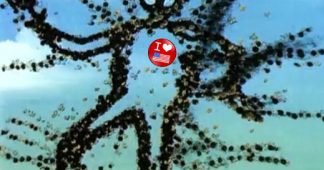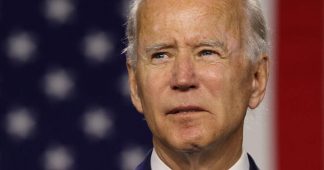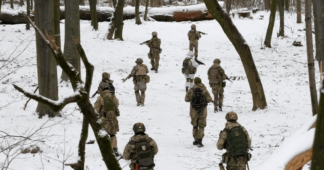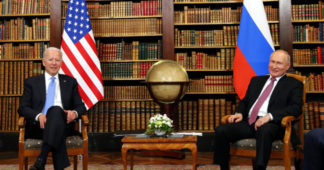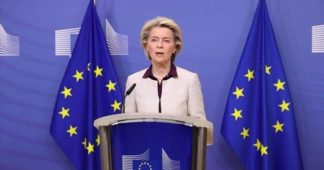Overextending and Unbalancing Russia
Assessing the Impact of Cost-Imposing Options
This brief summarizes a report that comprehensively examines nonviolent, cost-imposing options that the United States and its allies could pursue across economic, political, and military areas to stress—overextend and unbalance—Russia’s economy and armed forces and the regime’s political standing at home and abroad. Some of the options examined are clearly more promising than others, but any would need to be evaluated in terms of the overall U.S. strategy for dealing with Russia, which neither the report nor this brief has attempted to do.
Today’s Russia suffers from many vulnerabilities—oil and gas prices well below peak that have caused a drop in living standards, economic sanctions that have furthered that decline, an aging and soon-to-be-declining population, and increasing authoritarianism under Vladimir Putin’s now-continued rule. Such vulnerabilities are coupled with deep-seated (if exaggerated) anxieties about the possibility of Western-inspired regime change, loss of great power status, and even military attack.
Despite these vulnerabilities and anxieties, Russia remains a powerful country that still manages to be a U.S. peer competitor in a few key domains. Recognizing that some level of competition with Russia is inevitable, RAND researchers conducted a qualitative assessment of “cost-imposing options” that could unbalance and overextend Russia. Such cost-imposing options could place new burdens on Russia, ideally heavier burdens than would be imposed on the United States for pursuing those options.
The work builds on the concept of long-term strategic competition developed during the Cold War, some of which originated at RAND. A seminal 1972 RAND report posited that the United States needed to shift its strategic thinking away from trying to stay ahead of the Soviet Union in all dimensions and toward trying to control the competition and channel it into areas of U.S. advantage. If this shift could be made successfully, the report concluded, the United States could prompt the Soviet Union to shift its limited resources into areas that posed less of a threat.
The new report applies this concept to today’s Russia. A team of RAND experts developed economic, geopolitical, ideological, informational, and military options and qualitatively assessed them in terms of their likelihood of success in extending Russia, their benefits, and their risks and costs.
Economic Cost-Imposing Measures
Expanding U.S. energy production would stress Russia’s economy, potentially constraining its government budget and, by extension, its defense spending. By adopting policies that expand world supply and depress global prices, the United States can limit Russian revenue. Doing so entails little cost or risk, produces second-order benefits for the U.S. economy, and does not need multilateral endorsement.
Imposing deeper trade and financial sanctions would also likely degrade the Russian economy, especially if such sanctions are comprehensive and multilateral. Thus, their effectiveness will depend on the willingness of other countries to join in such a process. But sanctions come with costs and, depending on their severity, considerable risks.
Increasing Europe’s ability to import gas from suppliers other than Russia could economically extend Russia and buffer Europe against Russian energy coercion. Europe is slowly moving in this direction by building regasification plants for liquefied natural gas (LNG). But to be truly effective, this option would need global LNG markets to become more flexible than they already are and would need LNG to become more price-competitive with Russian gas.
Encouraging the emigration from Russia of skilled labor and well-educated youth has few costs or risks and could help the United States and other receiving countries and hurt Russia, but any effects—both positive for receiving countries and negative for Russia—would be difficult to notice except over a very long period. This option also has a low likelihood of extending Russia.
Continue reading at www.rand.org
We remind our readers that publication of articles on our site does not mean that we agree with what is written. Our policy is to publish anything which we consider of interest, so as to assist our readers in forming their opinions. Sometimes we even publish articles with which we totally disagree, since we believe it is important for our readers to be informed on as wide a spectrum of views as possible.
